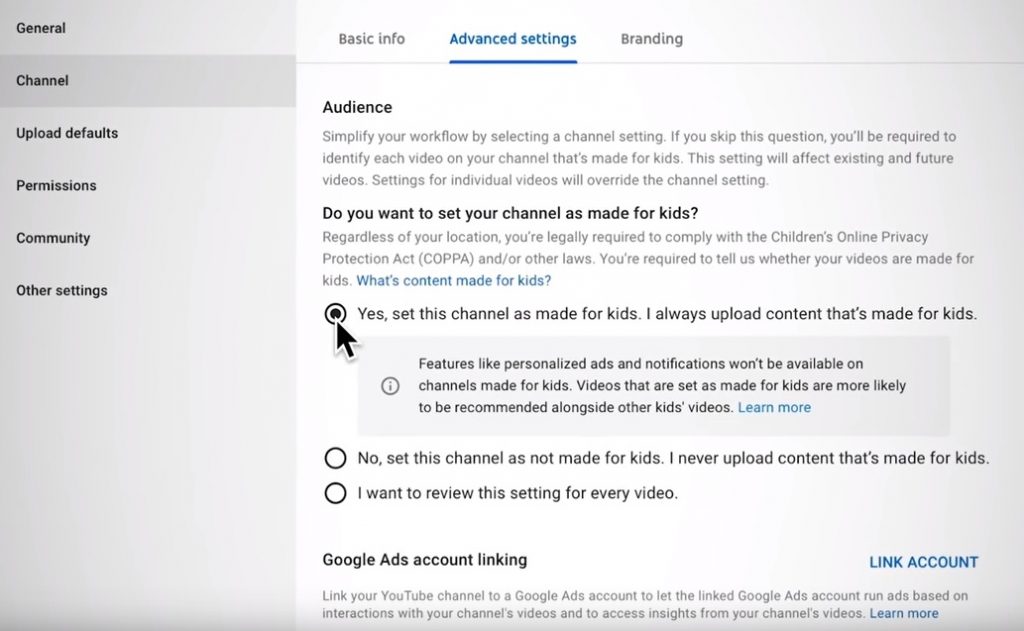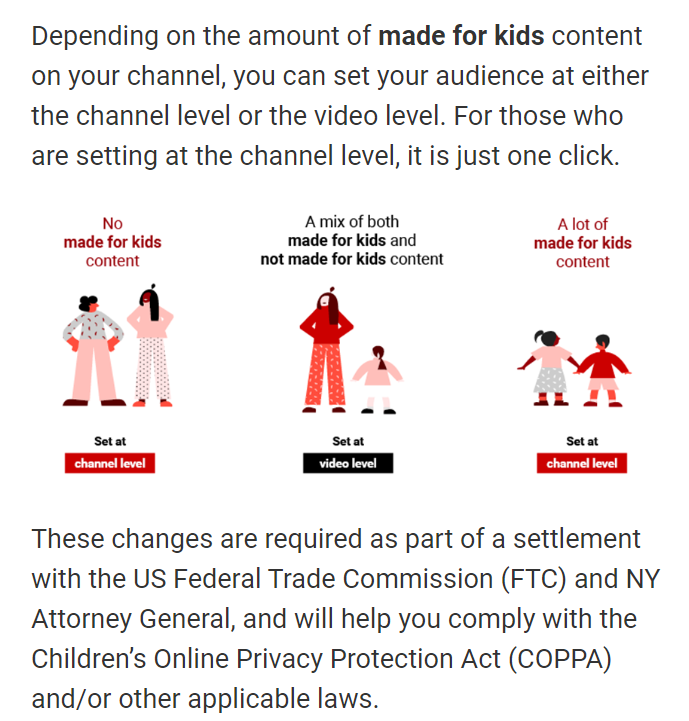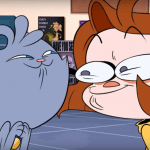YouTube Changing Policies for Kid-Friendly Content Is Causing a Valid Discussion

If you’re someone who consumes videos on YouTube or a YouTube Creator, you might be familiar with the upcoming policy changes. Said changes have caused a lot of discussion and rightfully so. The fact that the description of ‘kid-friendly’ content isn’t well-defined can lead to many channels losing a stream of income as well as greatly limit interaction with subscribers.
For those who might not know, in September of this year, there was a $170 million settlement between the FTC (Federal Trade Commission) and YouTube. It led to the streaming giant deciding to enforce new policies come January 1, 2020. Basically, videos deemed directed at children won’t have the ability to display personalized adverts.
Back in 2013, the FTC updated COPPA (Children’s Online Privacy and Protection Act). YouTube was found to be in violation of the law and thus, the lawsuit. YouTube tends to use a visitor’s personal details to determine which personal ads should be displayed.
With it being against the law to gather personal details of anyone under the age of 13, kid-friendly videos are currently being targeted. Furthermore, the new changes include not only specifically kid-friendly content, but videos that might be appealing to kids, too.
I mean, how can anyone clearly describe what could be appealing to kids?
So, you can tell why certain channels aren’t happy about such a decision. Many YouTubers collect and review figures and dolls meant for adults. But according to the new changes, such content can be flagged as appealing to kids and not display any personal ads which can lead to less or no monetization at all for the creators.
YouTube explained the new changes on their support forum:
In the coming months, here’s what’s changing:
- You will be required to tell us if your content is made for kids. In addition, we’ll use machine learning to help us identify videos that clearly target young audiences. At a high level, content that is made for kids has an emphasis on:
- Children or children’s characters.
- Popular children’s programming or animated characters.
- Play-acting, or stories using children’s toys.
- Child protagonists engaging in common natural play patterns such as play-acting and/or imaginative play.
- Popular children’s songs, stories or poems.
Ultimately, you know your audience best and we’ll rely on you to designate (in Studio) your videos as made for kids. If a creator attempts to avoid categorizing their content correctly, there may be consequences on the YouTube platform for that creator.
-
-
We will stop serving personalized ads on content that is made for kids, whether designated by you or by our classifier. In accordance with COPPA, serving personalized ads (ads that are targeted to users based on their past usage of Google products and services) to child audiences is not permissible. If applicable, this may result in a decrease in revenue for some creators. Note that we will continue to serve non-personalized ads (ads that are shown based on context rather than on user data) on content that is made for kids.
-
Some features will no longer be available on this type of content, like comments. The ability to comment will no longer be available on the watch page. Likes/dislikes and subscriptions on this content will not show up on public lists. Overall, viewers will have minimum engagement options with made for kids content on YouTube.com.
-
As a YouTube Creator, we recently got an email telling us about marking our channel and videos as content meant for adults, kids, or both.

According to TubeFilter, consequences for not complying include being fined $42,000 per video, which doesn’t make sense because (as far as I can tell) we, as YouTube Creators, don’t have access to what type of personal data is being collected when someone watches our videos. Also, what’s going to happen if a non-US citizen (who isn’t even living in the US) violates this law?
I think we’re going to see a lot of drama as January 2020 closes in and YouTube continues to make the platform as advertiser-friendly as possible.
Where does parental permission factor into all of this? If a parent is okay with their kids watching content that isn’t necessarily for children, should the FTC be putting its foot down in such a manner?
Anyway, there is some hope though.
The FTC seems interested in listing to the public about COPPA.
One of the YouTuber’s watch, NerdECrafter, has raised some good points about the entire situation. Also, yes, I agree with her about the new changes unfairly targeting videos of feminine-hobbies (mostly made by women on YouTube) compared to hobbies that are deemed masculine.
You can submit your comments to the FTC through the form here.
Are you a YouTuber? Feel free to share your thoughts with us.
Author: Farid-ul-Haq
Farid has a Double Masters in Psychology and Biotechnology as well as an M.Phil in Molecular Genetics. He is the author of numerous books including Missing in Somerville, and The Game Master of Somerville. He gives us insight into comics, books, TV shows, anime/manga, video games, and movies.
Help support independent journalism. Subscribe to our Patreon.
Copyright © The Geekiary
Do not copy our content in whole to other websites. If you are reading this anywhere besides TheGeekiary.com, it has been stolen.Read our







Stop them!